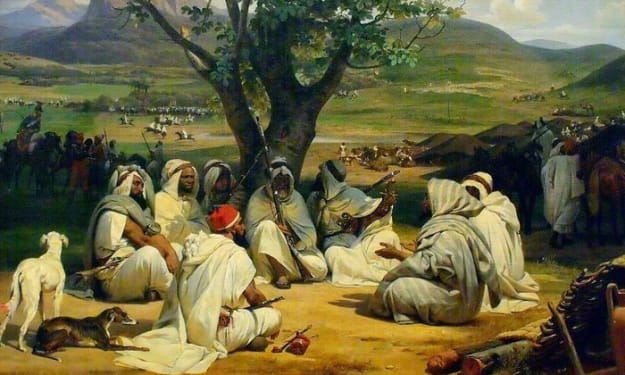History: of (kunta kinte)
**Kunta Kinte: The Resilient Spirit of a Gambian Slave**

The story of Kunta Kinte, a Gambian man enslaved and immortalized in Alex Haley's novel "Roots: The Saga of an American Family," is a powerful testament to the resilience of the human spirit in the face of unimaginable adversity. Kunta Kinte's life and legacy serve as a poignant reminder of the horrors of the transatlantic slave trade and the enduring strength of those who endured it.
**Early Life in Juffureh, The Gambia**
Kunta Kinte was born into a Mandinka family in the village of Juffureh, situated along the banks of the Gambia River in West Africa. His birth name, "Kunta," carried deep significance, as it was a traditional Mandinka name passed down through generations. Raised in a close-knit and loving family, Kunta experienced the rich cultural traditions and community bonds that defined life in Juffureh.
As a child, Kunta's days were filled with adventures along the riverbanks, stories passed down by griots (oral historians), and the teachings of his parents and grandparents. He learned the ways of his people, including the art of farming, storytelling, and the importance of family ties.
**The Transatlantic Slave Trade**
Tragically, Kunta Kinte's idyllic life in Juffureh was shattered when he was around the age of 17. In the late 18th century, the Gambia region was a hotspot for the transatlantic slave trade, with European slave traders raiding African villages to capture men, women, and children to be sold as slaves in the Americas.
One fateful day, while Kunta was out in the fields, he was ambushed by slave hunters. Despite his valiant efforts to resist, he was overpowered, captured, and bound in chains. This brutal and traumatic experience marked the beginning of his harrowing journey into the world of slavery.
**The Middle Passage**
Kunta Kinte, along with countless other enslaved Africans, was subjected to the horrors of the Middle Passage. Packed into the dark and overcrowded holds of slave ships, they endured weeks of unimaginable suffering. The conditions were deplorable, with inadequate food, water, and sanitation. Disease, despair, and death were constant companions on this treacherous voyage.
Throughout this ordeal, Kunta Kinte clung to his memories of Juffureh, his family, and his identity as a Mandinka. He never forgot his name, his people, or his homeland. These memories served as a source of strength and resilience, even as he faced the darkest of circumstances.
**Life in America**
Upon arrival in the Americas, Kunta Kinte was sold into slavery on a Virginia plantation. Here, he was subjected to the grueling and dehumanizing labor that defined the existence of enslaved Africans in the New World. Despite the physical and psychological brutality of slavery, Kunta remained determined to preserve his identity and resist assimilation into the oppressive system that sought to erase his cultural heritage.
**Resistance and Identity**
Kunta Kinte's resistance to his enslavement was steadfast. He refused to abandon his Mandinka name and heritage, despite the punishment he endured for doing so. He made numerous attempts to escape, seeking freedom and a return to his homeland.
Kunta's indomitable spirit became a symbol of resistance for those around him. His fellow enslaved individuals were inspired by his refusal to succumb to the dehumanizing conditions of slavery. His commitment to retaining his identity and culture was a powerful act of defiance against a system designed to strip enslaved people of their humanity.
**Legacy through "Roots"**
Kunta Kinte's story was brought to the world's attention through the 1976 novel "Roots: The Saga of an American Family" by Alex Haley. The novel, based on Haley's own genealogical research and family history, traced his ancestry back to Kunta Kinte. "Roots" became a cultural phenomenon, sparking conversations about the legacy of slavery and the importance of preserving one's cultural identity.
The book was adapted into a highly acclaimed television miniseries, watched by millions, further cementing Kunta Kinte's place in history. The character of Kunta Kinte, portrayed by LeVar Burton, became an enduring symbol of African resilience and the enduring quest for freedom and identity.
**Kunta Kinte's Impact**
Kunta Kinte's story resonates with people worldwide, serving as a powerful reminder of the atrocities of the transatlantic slave trade and the strength of the human spirit. His determination to hold onto his name and culture, even in the face of unspeakable cruelty, inspires generations to remember their roots and the importance of cultural heritage.
In Juffureh, The Gambia, the memory of Kunta Kinte lives on. The village has become a site of historical significance, drawing visitors from around the world who come to pay homage to the indomitable spirit of a young man who was forcibly taken from his homeland but never forgotten.
Kunta Kinte's legacy is a testament to the enduring power of identity, memory, and the human will to survive and resist oppression. His story continues to be a beacon of hope and a call to remember the past, honor cultural heritage, and strive for a more just and equitable future.
About the Creator
Abdou jagne
Muslim 🕋.
Proud Gambian🇬🇲
History : writer
($Vocal)
Follow my IG https://vocal.media/history/burna-boy-history






Comments (1)
Interesting history! Great work!